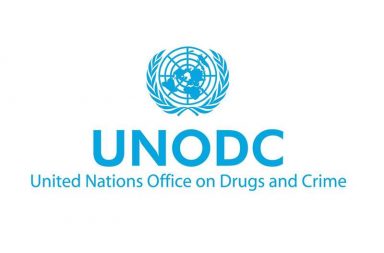By Kazi Evita Rashid
This particular write up is solely based on the abstract of my understanding, accumulated over my work-life that had sprouted during my freshmen year. I have not put any active efforts to evidence my understandings and to some extent, I felt I don’t need to convince anyone to deliver a verdict to affirm my hypothesis. There is always at least one among hundreds of anecdotes sailing around to verify each of everyone’s philosophy. A hypothesis needs no validation nor supporting evidence especially when they are not aspiring to be established as facts. However, by the time I was done with this write up, initially which was conceived as a hypothesis somewhat metamorphosed into rants of my idle mind confided in a train cart that seems to become very active peculiarly during the trapped hours of my long commute. Here I am willing to take the risk of inviting different contentions and I can assure that I am appreciative of disagreements as long as they refrain from inflicting judgment and insults for conforming to another school of thought. You are here reading either to agree or to disagree while maintaining respect and tolerance towards differences in opinions. This write up further proceeds to decipher my observation from my professional standpoint without delving deep and without applying obscure legal jargon and limbos. My write up is mostly an excerpt of my imaginary conversation during my long commutes (where I am mostly assumed to be asleep) with myself where I am further assumed to hold zero understanding of the legal premise.
Lately I have been wondering about legal cultures and learning to delineate it’s elements from ‘general culture’, at times I am trying to identify the driving factors by reading in between the lines and in conjunction to both; I have been able to isolate the stable patterns of rule and role of law conceived in the west (more precisely in NYC) from my former home city which of course did not take long due to stark differences. Before proceeding, a second disclaimer appears to be essential for mental mapping of the understanding; my experience here outlines the discrepancies I have witnessed in civil matter I.e. Real Estate mostly after migrating to NY. My initial struggle was to understand if ‘legal culture’ is an integral part of ‘general culture’ or could be experienced independently. But thoughts are fluid and if it cascades from point A, somehow It will always find itself landed on point C, completely drifted from its actual course. However, I will try my best to stay relative and relevant.
My empirical understanding of the legal profession after investing 5 years in law school and at various agencies, organizations and firms throughout is to initially become a ‘jack of all trades’ that will allow me to touch base with the multiple sectors of legal practices. Thereafter to streamline my expertise in a singular avenue was my ultimate goal. And so I went on focusing on learning everything; whatever opportunities had been presented before me without summoning any doubts. Each experience matters regardless of their vitality and even if they fail to occupy space on my resume, they do not fail to humor my performance during job interviews, relevant or not- It all boils down to maneuvering own experiences that may appear redundant on the surface but learning to put them in right application is something law school didn’t teach me but law practices in real life did. If law school prepares you to overboard yourself with ‘know-how’, each job opportunity be how minuscule they are will teach the ‘how to’. Well, that’s how I opine, people may differ.
During my apprenticeship at a law firm during my final year, I realized I was premised for land law. I didn’t quite enjoy my time there, work culture felt unwelcoming and easy to dishearten. But clearly it prepared me for the worst. And after migrating to NYC, I did not wish to deviate from Real Estate. I already knew I am not meant for criminal practice no matter how thrilling and exciting it appears on TV, to work in real life requires to learn how to juggle with conscience and how to say no to guilt trips. And I am easy to make those trips. I am better off foreclosing on people’s property or saving them from one. I prefer to sleep well at night without feeling heavy free from the pull of conscience-gravity.
However, I was taken aback to notice how the real estate culture annexed to the legal procedure in NYC was outrageously different from Bangladesh. The structural and administrative difference in the policymaking that is responsible for governing and propelling an entire transaction needs not to be in disagreement when the core transnational principle is universally similar. Bangladesh adheres to the common law; a system imposed as part of the colonial project and stands in contrast with the US legal system. It is only natural that with time and due to globalization, socio-legal engineering evolves by propelling economic growth along with other variables tailored towards country context and demography, but I am failing to witness any such positive evolution in terms of law reform, enforcement and policy implications. I understand both countries are significantly in contrast and are at two different spectra in terms of ‘legal culture’ and mostly in ‘general culture’. However, trying to achieve the middle ground in the interim and to model a legal system (if necessary) by means of ‘legal transplant’ should not be left unexplored, as a matter of fact it is not and we already are an existing outcome of ‘legal transplant’ that took place nearly 200 years ago. But we are insensitive to welcome the new modifications regardless of its constructive and fruitful contributions. As a nation, we are fearful of everything new and fail to adapt and accommodate the same no matter how favorable it could be for our public interest.
Imitation or borrowed legal culture does not impose a question of ingenuity and will not hold anyone morally or legally accountable. Countries like Japan and Turkey legal systems were a byproduct of such legal transfer where their legal system has thrived faster than any other nation; the South African constitution took their inspiration from the US Constitution instead of their neighboring nations. I am aware of government-funded projects in Bangladesh catering international training to young officials by arranging trips for them to US, Europe and other developed countries where their visits to state/ government offices are primarily focused on educating and acclimating themselves with departmental procedure of record-keeping, managing and organizing so that an elevated and updated idea could be absorbed and thereafter implemented by tailoring to country context. As mentioned, legal culture spawning legal structure is more or less similar in every country, engineering the skeleton only accounts for good managerial and policymaking skills. ‘Touch-ups’ in order to inaugurate implementation can only then be a matter of time. I am not suggesting reforming the whole land department of a country is a task simple enough to accomplish in a year or two. When undertaking a project that has remained unprecedented also qualifies for errors unforeseeable. Therefore, there remains room for mistakes which however must be welcomed and appreciated only to strengthen the process. Test drives take years and calls for patience as well.
As I was talking about my bewilderment referencing to the austere procedural differences in real estate in NY and land/property law, the involvement of third parties and representations thereof in each real estate transaction came out to me as new and remarkably redundant. In Dhaka where buying properties requires faith and funds, enough to buy and bribe, to me it was a sheer waste of resources and everybody’s time. Dhaka lacks infrastructure and the legal system to introduce third party representation; no new information. I still recall my walk to the Court with one of my co-workers who happens to be a litigation attorney and I was voicing my curiosity and sharing my ‘first impressions’. But as the conversation grew and the walk became shorter, I realized that’s how NY generates employment and creates job opportunities. I realized the third parties and their mandatory self-invitation in each transaction is a casual factor out of many exhibiting the growing economy. The real estate laws are codified in a manner to promote Third-party representation, ensuring when the property is delivered, the title is clear. You will have to simultaneously multi-task with separate divisions; 8 different Third parties and in many cases more or less depending on the nature of the transaction, are obligated to participate in the interplay while remaining behind the scene along with the Seller and Purchaser at the front represented by their own attorneys. Just imagine the number of parties involved in the whole process. More people in a process suggests a more convoluted amount of work but also references a systematic workflow. And that is due to well-devised rules and regulations of real estate law that embodies and outlines the work process, unlike our land laws that only cares about boundaries that will need to be justified from 3 different khatians surviving since the British era. It bewilders me why an attempt to uniform the land documents has not even taken into consideration and even if it has been, I will not be surprised to learn about the number of failed and premature attempts that have been undertaken to introduce and to adopt strategic and systematic measures to reform land offices and also how blatantly they have been turned and flushed down due to austerity of bureaucracy and lobbying.
I recall my first day at work as a real estate paralegal where I felt I have been advanced two decades onward in relation to the land recording. Back in Dhaka at the law firm, I was swamped with documents piled up on my barely 3 feet wide desk that struggled a lot to accommodate land deeds that were 3 inches thick each. When working with land documents the first line of work is to validate ownership and it is done by validating the chain of title and due to lack of proper recording, the task became daunting and formidable especially when you have to go through undecipherable handwriting used manually in recording the same. Neck ache and eye soar were my everyday complaints after work. But my bewilderment turned into frustration when I learned all the recorded land deeds and copies of them are kept in Registry Office in a separate room. When the world is going paperless and digital, we are more adhering to the opposite and the primitive. The record room is nothing but a fire hazard which is also a good dinner invitation for bug infestations. On the contrary, here in NY the property deeds are public records and are accessible via the website where no password is required. The website itself will systematically and chronologically describe your chain of ownership without you delving into a whole unclear, difficult set of incomprehensible handwritten paragraphs. I was surprised to notice how time effective, productive and drama-free the whole procedure has become. By adopting the recording process similar to NY, a subdivision could have been established in Bangladesh which will also generate employment as such jobs do not call for graduate degrees.
It is my understanding that Bangladesh’s legal culture is made complicated by choice. During my first-time pleading drafting, I obviously made my best effort to make it as obscure as possible stripped of factual emotions and overburdened with legal references and case citations as I had been schooled and experienced back in Dhaka. My boss after reviewing sat me down and illustrated how it should rather be a story telling so that even a lay person can comprehend. I was shocked. With time I am comprehending how much in Dhaka we like to discuss problems without outlining accessible solutions. I also understood why we are so reluctant and fearful to retain legal service and who wouldn’t be when it is presented as a case unfathomable and incomprehensible whereas lawyers here exert their best effort to demystify the legal system to their client. It is only natural that humans will avoid and refrain from what they do not understand and legal culture in Bangladesh has the very nature of quiet the opposite where the advocates like to cater their service in the most complex manner as much as possible. The ‘legal reform’ as suggested above-mentioned can only sustain if the ‘legal culture’ allows it to. A strategy is good and effective as long as the culture is favorable to it.
Legal culture if dissected and analyzed as a unit would further include the behavioral pattern of lawyers to their other associates, clients and even to their subordinates and staff. Even if perceived from a ‘general culture’ standpoint, It is no surprise to anyone that Bangladesh likes to play by hierarchy, a primitive game I find viciously detrimental to increase productivity. At times, I question if Bangladesh’s legal culture even thrives to increase productivity and work forward to achieve or sustain the same. Barely I hear of instances where my fellow friends have received compliments or accolades that one time from their seniors/bosses for a job well done. No matter how impressive the performance has been, instead of a word of encouragement, the common practice is to impart more advises on the minor or imaginary loopholes and how one could have done better. A sad situation or just a sad work culture?
I am not even going to touch-base further regarding other aspects of real estate law in NY. It is vast and I can go on forever. I just hope for a wind of change that has always been sought for not only just by me but by the young people joining the legal workforce. If progress has been made or initiatives have been undertaken that have not come across me, please do share and enlighten. The public, in general, would be relived and encouraged to learn about their rights and remedies and to take recourse to legal service.
_________________________________________________________________________________
Kazi Evita Rashid is a young legal professional located in New York with specialization in Real Estate. She’s a DU alumnus and loves traveling and writing.



